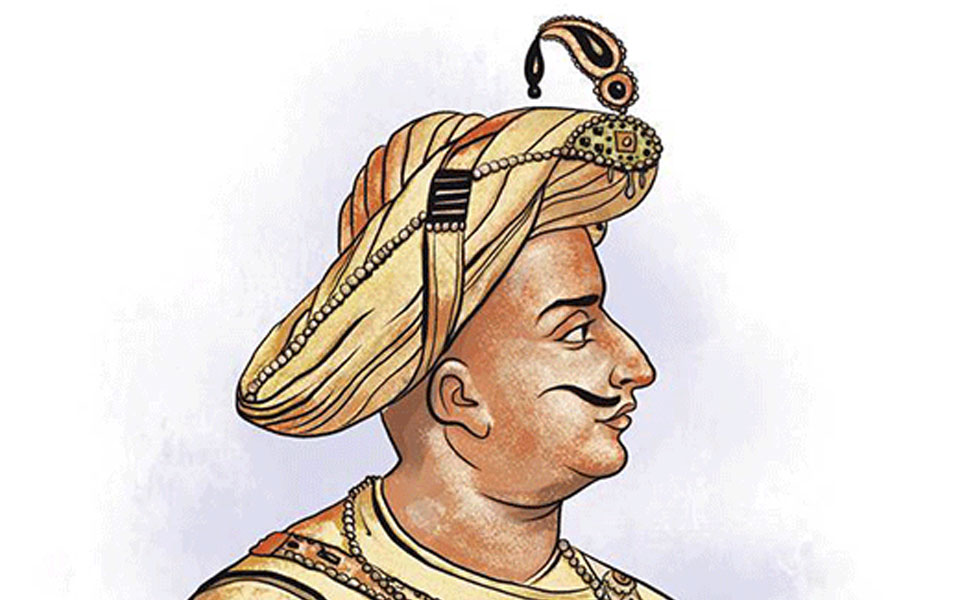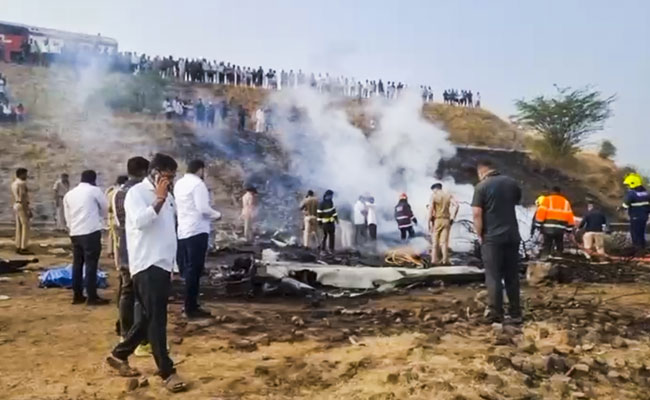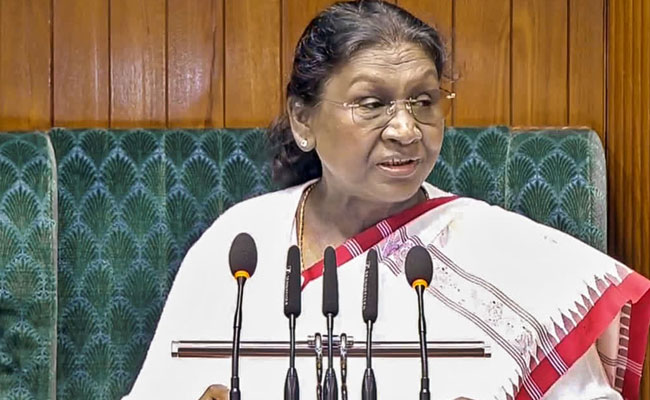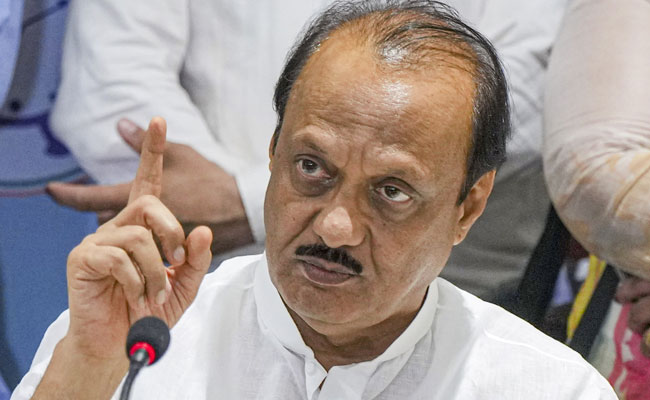The politics behind ‘jayanthi’ or birth anniversary celebrations have always been deducing in effect of the significant persons who we wanted to remember on their birthdays for their contribution to the society. Except for Gandhi Jayanthi, all other Jayanthis have been categorized as those of people who serve as a symbol of a community. Ambedkar Jayanthi is for Dalits, Kanaka Jayanthi is for Kurubas, Narayana Guru Jayanthi is for Billavas, Shankara Jayanthi is for Brahmins, Valmiki Jayanti is for Bedas, so on and so forth. All these celebrations are to please a particular community. Now the coalition government is out to tie Tipu Jayanthi to Muslim identity. BJP plans to rake some Hindu votes by opposing this as always, and the coalition government is worried that Muslims may get angry if they do not celebrate Tipu Jayanthi. In this whole melee, Tipu is just a metaphor and his birth anniversary celebration is never a question of life-and-death for the Muslims of this state.
And to say that, Tipu does not belong to Muslims alone. There is no link between the demands and requirements of muslims of this state pertaining to economical growth, education and other futuristic resources as against his Jayanthi being celebrated. Hundreds of muslim kings have ruled this country but the Muslims of this nation have not associated their identity with any one ruler at all. At the same time, Hindus have not associated with any one Hindu king either. An excellent example for this is when Shivaji fought to stop the Mogul invasion, Dalits and Muslims offered their support to him. Brahmins and Rajputs actually fought on his opposite side. All of Shivaji’s 11 chiefs of army were Muslims. His bodyguards were muslims and dalits. This is the main reason why despite their best efforts Sangh Parivar fails to project him as only a hindu ruler. Tipu Sultan is also no exception to this. His army had people from all communities. In the 1799 May 4 battle, Tipu was killed along with his soldiers. About 11,000 soldiers were killed by the British after his death. Among them were people from all communities, especially those from backward and dalit communities. We need to remember, insulting Tipu is to insult the contribution of all those 11,000 soldiers who laid down their lives for this land and their king.
More than this, we can never call the wars waged against the British as full term struggles that led to freedom fight in the country. All kings fought to save their own existence than opposing the British invasion on the whole nation. Even the second freedom struggle wasn’t a full term attempt to free the country from the British. Kings of small provinces stood to oppose the British invasion to save their territories. Nana Saheb was in a difficult situation after Maratha king second Bajirao lost miserably to the British. His love for the nation became more pronounced only when the British ended the royal purse he was being paid. Lakshmi Bai joined hands with him only when she decided to fight against the law that said adopted children didn’t have any rights. This was not people’s fight against the British tyranny. There was hardly any difference between small rulers, feudal zamindars or authoritarian kings and their administration. As a result of this, Tipu fought to save his state.
Today, when we look at him, he must seem significant to us not as a king who fought the British but as a king who ruled his subjects with a vision and people-centric administration and the significant changes he ushered in through his rule. If a government wants to remember Tipu for such contributions, it would be a befitting tribute to him. But if he is restricted to his identity of being a Muslim, which is a very unimportant part of his persona, we would be insulting the statesman in him. Why is he important for Karnataka? Because, he dreamt of Kannambadi reservoir. The proof of this lies in the stone tablet that speaks of his dream at the entrance of Kannambadi reservoir.
He was the first Kannada king to have owned up the concept of ‘citizen’ which was born out of French revolution, and opened up to Citizen club and Liberty Tree, and his knowledge about world revolutions was massive. He took over Malabar and ended the caste-based tyranny of Namboodiri Brahmins and abolished the ‘blouse tax’ to be paid by women from lower castes before they could cover their breasts. This was done by a Kannadiga king. He extended the state of Mysore from province of Mysore, bringing in most of today’s Karnataka under this name. He held together the land that could have been torn owing to Maratha and Nizam occupation and misrule. He distributed lands to farmers directly ending feudal Zamindari and Jagirdari land ownership. He brought the land that was divided into the hands of about 200 feudal owners and gave it to farmers. Researchers say it was during Tipu’s time that Dalits came to have ownership of lands for in one of those rarest occasions in history.
He had developed good bilateral relations with the French and took their help to herald the industrial revolution in India. He dreamt of setting up modern missile manufacturing units in India. He is solely responsible for encouraging silk cultivation in the state and to ensure Karnataka stood among prime states when it comes to silk. He imported knowledge of silk extraction from China and middle-eastern countries. He banned alcohol. He did all this while constantly being engaged on war front by his enemies who gave him no time to even breathe, perhaps. Kodavas and Christians who joined hands with the British did turn against him.
Historians have already proved the claims of conversion and genocide carried out by him as per the Sangh Parivar are figments of imagination. If he was a blind faith follower, he would have joined hands with the Nizams. The Marathas who saw an enemy in him destroyed Shringeri Sharada Peetha. Tipu rebuilt it. He rejuvenated Pacche Linga in Nanjangud temple, Venugopala Swamy temple in Devanakote, Ranganatha Swamy, Narasimha Swamy temples in Namakkal in Tamil Nadu and Vatapi temple in Badami all have received financial assistance from him and there are documentations to prove this claim. Offerings are given in Tipu’s name in Kollur among many other temples. Ranganatha Swamy temple in Tipu’s capital of Srirangapatna is thriving. Coins from his time have messages of religious harmony with embossed images of Trishula and Lakshmidevi.
Hyder had used world’s first rockets. This has been recorded in history by the British themselves. NASA remembers Tipu for this contribution of his. All these records are a result of his Kannada identity. To reject them is to close eyes to the golden period of Kannada history. When people from other states are willing to believe Amar Chitra Katha kind of linear narratives, we have to remember this land gave birth to Tipu and we have to celebrate his life by celebrating his birth anniversary. His pride belongs to the whole of Karnataka. The ones who are categorizing him only as a muslim king are denying his contribution and twisting all narratives to suit their agenda. If we can pass on his contribution to next generation, we would be honouring ourselves.
Let the Truth be known. If you read VB and like VB, please be a VB Supporter and Help us deliver the Truth to one and all.
Hyderabad (PTI): The Aircraft Accident Investigation Bureau (AAIB) will probe the plane crash at Baramati airport that killed Maharashtra Deputy Chief Minister Ajit Pawar and four others on Wednesday.
The Learjet 46, operated by Delhi-based VSR Ventures, crash-landed at the airport. There were five people onboard, including the crew members, according to the aviation regulator DGCA.
A senior official told PTI that the AAIB will be visiting the crash site and it will be investigating the accident.
AAIB is responsible for classifying safety occurrences involving aircraft operating in Indian airspace as accidents, serious incidents, or incidents. It carries out detailed investigations into accidents and also suggests measures to improve safety.





